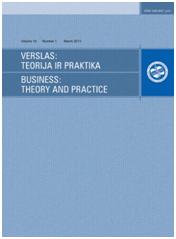Multilingualism as a Business Development Factor
Multilingualism as a Business Development Factor
Author(s): Boguslavas Gruževskis, Julija MoskvinaSubject(s): Economy
Published by: Vilnius Gediminas Technical University
Keywords: multilingualism; business; language strategy; Language Rich Europe
Summary/Abstract: Globalisation and rapidly changing economic environment force businesses to look for new survival or development strategies, fight for new markets, and adapt to turbulent circumstances. Access to new countries and expansion to new markets increasingly determine success and affect the overall economic development. Such factors as growing volumes of export and import, increasing tourism flows, and intensifying international territorial mobility increase people‘s motivation to learn foreign languages. Such knowledge not only extends conditions of economic operation, but also increases the efficiency and reliability of communication (for example, facilitates the acquisition of foreign organizational culture). Therefore, it can be concluded that the processes of economic globalisation increases the need for foreign languages as well as the value of linguistic skills. On the other hand, the dominant position of the English language in the world continues to be strengthened; English is widely considered as the international language of communication. However, as English is treated as a norm, other languages become even more significant. This article presents the business survey data from the “Language Rich Europe” project. The data confirm the predominance of the English language in corporate internal and external communication across European countries. However, the collected data show the growing importance of non-EU languages for businesses. The macro-economic context of the use of different languages in the business sector is presented in this paper as well as conclusions on the interconnection between economic trends and the need for language skills in the import-export and tourism-focused businesses. The article is based on the project “Language Rich Europe” data (www.language-rich.eu).
Journal: Verslas: teorija ir praktika
- Issue Year: 15/2014
- Issue No: 1
- Page Range: 22-31
- Page Count: 10
- Language: Lithuanian

